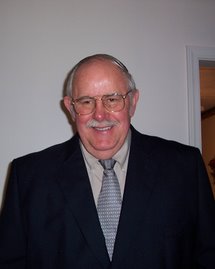Let us beg the Spirit of God to teach us; we must be "divinely taught;" the eunuch could read, but he could not understand, till Philip joined himself to his chariot (Acts 8. 29). God's Spirit must join himself to our chariot; he must teach, or we cannot learn: "all thy children shall be taught of the Lord" (Isaiah 54. 13). A man may read the figure on the dial, but he cannot tell how the day goes, unless the sun shines upon the dial: we may read the Bible over, but we can not learn the purpose, till the Spirit of God shines into our hearts. (2 Corinthians 4. 6) O implore this blessed Spirit! It is God's prerogative-royal to teach: "I am the Lord thy God, which teacheth thee to profit" (Isaiah 48. 17).
Ministers may tell us our lesson, God only can teach us; we have lost both our hearing and eye-sight, therefore are very unfit to learn. Ever since Eve listened to the serpent, we have been deaf; and since she looked on the tree of knowledge we have been blind; but when God comes to teach, he removes these impediments. (Isaiah 35. 5) We are naturally dead. (Ephesians. 2. 1) Who will go about to teach a dead man? Yet, behold, God undertakes to make dead men to understand mysteries! God is the grand teacher. This is the reason the word preached works so differently upon men; two in a pew, the one is wrought upon effectually, the other lies at the ordinances as a dead child at the breast, and gets no nourishment. What is the reason? Because the heavenly gale of the Spirit blows upon one, and not upon the other; one hath the anointing of God, which teacheth him all things. (1 John 2. 27) The other hath it not. God's Spirit speaks sweetly, but irresistibly. In that heavenly doxology, none could sing the new song, but those who were sealed in their foreheads. (Revelation 14. 2) Reprobates could not sing it.
Those that are skillful in the mysteries of salvation must have the seal of the Spirit upon them. Let us make this our prayer: Lord, breathe thy Spirit into thy word; and we have a promise, which may add wings to prayer; "if ye then being evil know how to give good gifts unto your children; how much more shall your heavenly Father give the Holy Spirit to them that ask him?" (Luke 11. 13)
.jpg)
.jpg)


